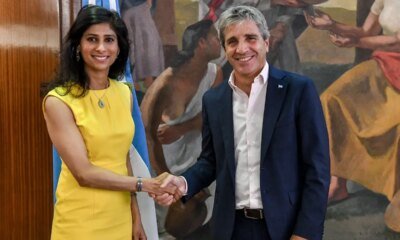INTERNACIONAL
George Wendt’s mistaken jabs at John Boehner link ‘Cheers’ and Ohio politics

There was no mistake when the beloved but forlorn accountant Norm Peterson chugged his way into the fictional TV bar «Cheers.»
«Norm!!!» hollered the regulars in unison, ranging from mail carrier Cliff Clavin to «Mayday» Sam Malone, the former Major League pitcher-turned barkeep.
If only former House Speaker John Boehner, R-Ohio, or late Rep. Buz Lukens, R-Ohio, had been as recognizable to George Wendt, the actor who played Norm on the sitcom.
REMEMBERING REP. CHARLIE RANGEL — AND A VOICEMAIL I’LL NEVER FORGET
Wendt died last week at age 76. The portly, everyman, «Willy Loman» character Wendt created was one of the most iconic in the history of comedic television. Wendt’s portrayal of Norm earned him six consecutive Emmy nominations for Best Supporting Actor in a primetime series.
But during Boehner’s first race for Congress in 1990, Wendt inadvertently manufactured a bizarre and permanent connection to the future Speaker of the House.
In 1989, Lukens represented Ohio’s 8th Congressional District. But WSYX-TV in Columbus, Ohio, secretly recorded Lukens at a McDonald’s speaking with the mother of a teenage girl. Lukens talked to the woman about getting her a government job. He hoped to keep her quiet about his sexual activities with her daughter.
During Boehner’s first race for Congress in 1990, Wendt inadvertently manufactured a bizarre and permanent connection to the future Speaker of the House. (Reuters/Yuri Gripas)
Lukens denied any wrongdoing in public. He was charged and later convicted of contributing to the delinquency of a minor. The House Ethics Committee launched an investigation. But Lukens declined to step aside. That teed up a three-way Republican primary between Lukens, the former congressman who represented the district, the late Rep. Tom Kindness, R-Ohio, and Boehner.
Boehner was a state legislator at the time. The scandal embroiling Lukens created a rare opportunity to head to Washington.
As strange as it seems now, Boehner was the least-known of the three Republican candidates in what turned out to be a brutal primary. But Boehner’s innate political acumen shone through – decades before he would ascend to the Speaker’s suite.
Despite the scandal, Lukens remained popular in the district. He had served as the congressman decades earlier and returned to the House when Kindness ran unsuccessfully for the Senate against late-Sen. John Glenn, D-Ohio, in 1986. So with the Lukens scandal, Kindness wanted his job back. And Boehner hoped to capitalize on the opportunity.
BY DAWN’S EARLY LIGHT: BATTLES TRUMP’S ‘BIG, BEAUTIFUL BILL’ WILL FACE IN THE SENATE
Can you top a name like that? «Congressman Kindness.» No wonder it was such a challenge for the upstart, future Speaker with the unpronounceable, Teutonic surname.
But Boehner won. And even though he felled Lukens and Kindness, it was not a done deal that Boehner would win the general election.
Boehner ran against Democrat Greg Jolivette, the mayor of Hamilton, Ohio, the biggest city in the 8th Congressional District. Jolivette was best known for changing the name of «Hamilton,» to «Hamilton!» in the 1980s. He also ran Jolly’s Drive-Ins in Hamilton. Imagine 1970s hamburger joints where you can order from your car, bedecked in orange.
But we’re talking about «Cheers» here. Not «Happy Days.»
Wendt was at the height of his popularity during the summer of 1990 as Boehner and Jolivette barreled toward a general election faceoff. So Wendt appeared on late-night TV on «The Arsenio Hall Show.»
Look him up, kids.
Hall’s syndicated show was never going to beat NBC’s «The Tonight Show with Johnny Carson» in the ratings. But the program scored major headlines in 1992, when future President Bill Clinton played saxophone on the show in an effort to appeal to a younger demographic, which gravitated to Hall rather than Carson.

Wendt’s portrayal of Norm earned him six consecutive Emmy nominations for Best Supporting Actor in a primetime series. (Herb Ball/NBCU Photo Bank/NBCUniversal via Getty Images )
Clinton’s appearance was a seminal moment in American politics and may have helped him win the election. Certainly the most important political event on Hall’s show. Wendt’s appearance proved to be the second-most important.
Jolivette was Wendt’s brother-in-law. He periodically parachuted into Ohio’s 8th District to campaign for Jolivette and against Boehner. So Hall asked him about Wendt’s political involvement and Jolivette.
Wendt proceeded to essentially libel Boehner on the air. Wendt never mentioned Boehner by name. But Wendt mixed up Lukens and his sex scandal with Boehner. On national TV, no less.
«The guy he’s running against had some problems a while back,» said Wendt, referring to Jolivette’s opponent, but mixing Boehner up with Lukens. «The guy from the 8th District had some convictions, some felony or a misdemeanor or something. So I think it’s time for a change. One thing’s for sure, I know, Greg’s not going to be a criminal.»
TRUMP’S ‘BIG, BEAUTIFUL BILL’ FACES CRUCIAL HOURS AS JOHNSON COURTS FREEDOM CAUCUS
Hall is an Ohio native. But he was apparently not versed in the Lukens scandal – even though it was a national story and commanded daily headlines. He didn’t inquire further or correct Wendt. After all, this was a late-night comedy and variety show. Not «Meet the Press.»
A publicist for Hall blamed the issue entirely on Wendt, saying the host has no control over «what (guests are) going to say.»
Things then turned nasty when Boehner’s team put out a statement.
«We, like a lot of viewers, are confused about the conversation last night. We don’t know if they were talking about Congressman Lukens’ problems or perhaps the theft complaint filed with the Hamilton (Ohio) Police against Greg Jolivette,» said the Boehner campaign.
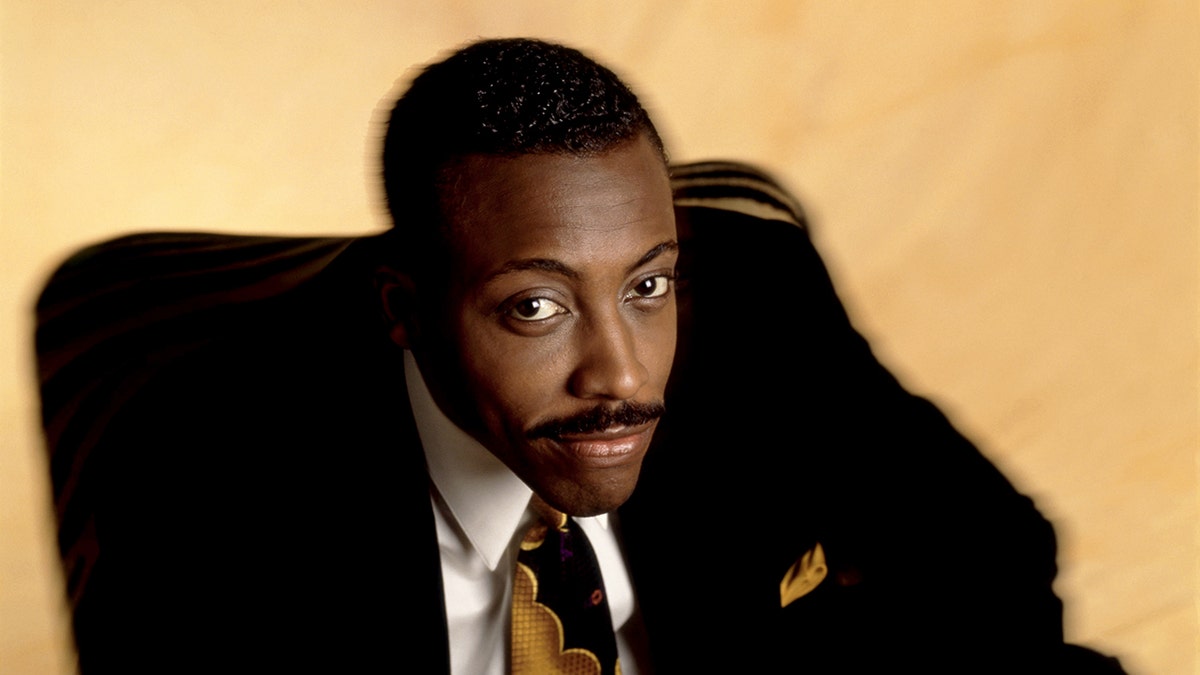
American comedian and talk show host Arsenio Hall poses for a portrait sitting in his chair in Los Angeles, circa 1991. (Bonnie Schiffman/Getty Images)
Jolivette’s campaign argued this was an old allegation and it wasn’t true. They then demanded that Boehner fire Barry Jackson, Boehner’s campaign manager. Jackson called the episode «cheap gutter politics.»
Boehner himself pinned the case of mistaken identity on Wendt. He believed the actor should have been more responsible for what he said on national TV.
Boehner didn’t fire Jackson. Jackson worked with Boehner for years and later served as his chief of staff when he became House speaker.
Wendt’s gaffe was not fatal for Boehner. Even though there were nearly as many Democrats as Republicans registered in the 8th District in those days, it had elected Republicans for years. And Boehner vanquished Jolivette 61-39 percent in the general election.
The rest is history for Boehner.
CLICK HERE TO GET THE FOX NEWS APP
Fast-forward to today. Boehner took to X after the actor’s death. The former Speaker explained how Wendt was the brother-in-law of his opponent and «went on a late-night TV show and said some tough things.»
Boehner said that Wendt was «confusing me with someone else. He called later to apologize and we had a great conversation. Raising a glass tonight to the man America will always remember as Norm.»
Or, as they might say on the show, «Cheers.»
Politics,Congress,Senate,House Of Representatives
INTERNACIONAL
“No estoy defendiendo la inmortalidad, solo que elijamos no morir”: Bryan Johnson habló sobre longevidad, IA y la revolución del Project Blueprint
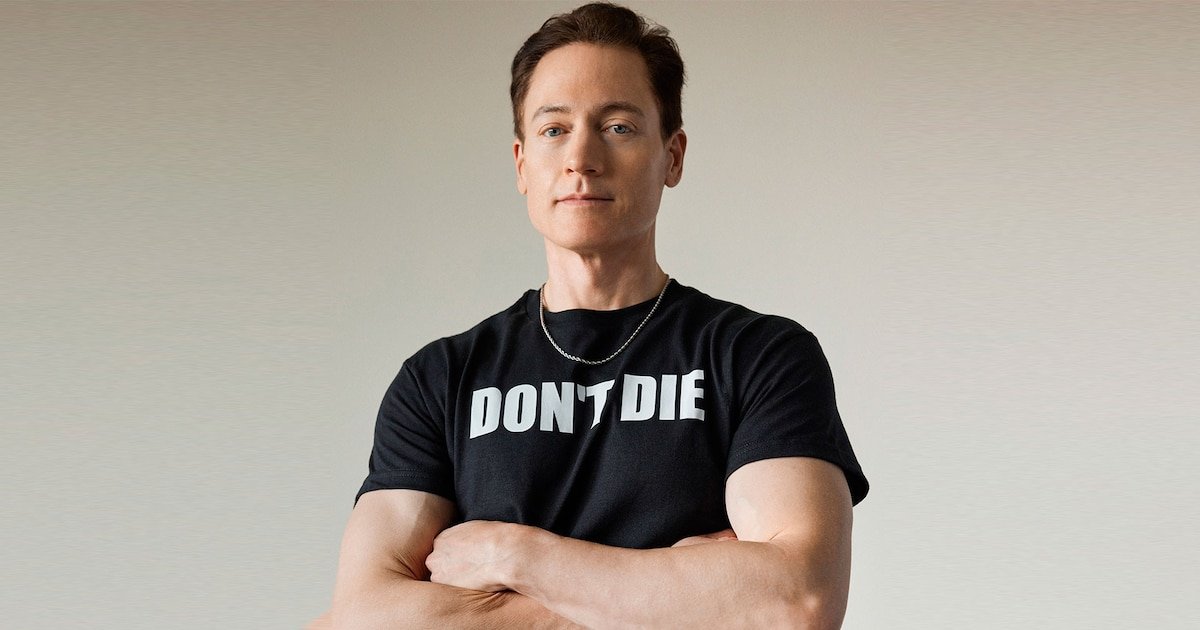
Hace algunos años, Bryan Johnson saltó a la fama mundial como el multimillonario de la longevidad, pero su historia y ambiciones revelan mucho más que rituales y comportamientos llamativos. La iniciativa Project Blueprint, que lidera desde California, es tanto experimento personal como empresa biotecnológica: une inteligencia artificial, cuantificación exhaustiva y sistematización para desafiar los límites del envejecimiento humano.
Johnson cree que la clave para prolongar la existencia reside en la automatización estricta de la rutina, complementada por tecnología de punta y una filosofía centrada en la supervivencia.
Su residencia en Venice, California, se asemeja a un laboratorio, donde ningún detalle queda al azar: desde la comida y los suplementos hasta la recolección y almacenamiento de muestras biológicas, toda variable se encuentra bajo control.

Johnson somete su cuerpo a un régimen tan meticuloso como exhaustivo: su día inicia antes del amanecer con exposición a luz de 10.000 lux, control de temperatura, aplicación de sueros, ejercicio, terapia de luz roja, oxigenación, sauna y múltiples pruebas médicas. La dieta es exclusivamente vegetal, restringida a la mañana y antes del mediodía, e incluye decenas de suplementos para optimizar métricas que él considera clave.
En tanto, desde 2021, la estrategia de Blueprint incluye alimentar una inteligencia artificial —Bryan AI— con todos sus datos y declaraciones, con el objetivo de perfeccionar su régimen y avanzar hacia la potencial transferencia de conciencia a sistemas computacionales.
La visión de Johnson trasciende la salud personal: postula que la supervivencia debe ser el nuevo eje ético, capaz de suplantar la búsqueda de riqueza y estatus en el mundo contemporáneo.

En búsqueda de más información, el equipo de Wired visitó el peculiar hogar del millonario. A cada paso, notó detalles tan pulidos como los fruteros repletos de kiwis y plátanos, y al mismo tiempo tan imperfectos como una naranja mohosa, “algo, al parecer, huele mal en la finca de Johnson”, afirmaron.
Un dilema que, en palabras de quienes transitaron por este lugar, materializa un contraste y dilema de este personaje: Johnson construye un entorno artificial casi perfecto, pero choca de frente con los límites y “fallos” de la condición humana.
Durante la conversación, Johnson explica con detalle su rutina nocturna: “He construido toda mi existencia en torno al sueño”, afirma y deja en claro que el descanso no es solo una necesidad biológica, sino el pilar central de su estrategia de longevidad. “Mi perfil de sueño es el de alguien de veintitantos años: duermo ocho horas y 34 minutos, me levanto menos de una vez por noche, y tengo un 94 % de eficiencia”, detalla.

Su jornada, dice, empieza la noche anterior: se acuesta con precisión quirúrgica, se duerme en minutos y se despierta antes del amanecer, exponiéndose a luz intensa y midiendo parámetros como la temperatura basal, que en su caso ha descendido más de dos grados: “Hay pruebas de que las especies con temperaturas más bajas viven más”, afirma.
Cuando se le plantea, de manera directa, si alguna vez morirá —una pregunta que más parece filosófica que biológica—, Johnson responde sin titubeos: “Falso”, ya que todos sus datos y discursos ahora se encuentran dentro inteligencia artificial personalizada.
“Actualmente, de forma muy rudimentaria, tengo una IA de Bryan que ha asimilado todo lo que he dicho”, un cambio que, según afirma, redefine el valor de seguir vivo: “A medida que la tecnología mejora, el bien más preciado será la existencia; la inmortalidad, tal como la concebíamos antes, a través de los logros, la descendencia o la vida después de la muerte, se devaluará en comparación con la existencia. Esa es mi apuesta fundamental para el futuro”.

Como figura pública obsesionada con la longevidad, Johnson no ha escapado a las críticas. Algunas figuras han señalado que su nivel de control podría rozar comportamientos obsesivos o incluso patológicos.
Es más, durante la entrevista, se comparó su comportamiento con patrones de un trastorno de la conducta alimentaria (TCA), una afirmación que Johnson no evade: “La mayoría de la gente que conozco en Estados Unidos tiene un trastorno alimentario. Claramente, luché con el control de mi ingesta de alimentos”.
Defiende su enfoque como una estrategia racional frente a un entorno saturado de estímulos adictivos. “¿Por qué iba a luchar contra decisiones cotidianas, diversas y, en última instancia, irrelevantes, cuando pueden automatizarse? Prefiero dedicar mi escasa capacidad cerebral a pensar en cosas de mayor nivel, como el futuro de la raza humana”, sostiene.
La automatización —para Johnson— es una estrategia de autonomía frente a un entorno saturado de algoritmos que incentivan el consumo y las adicciones. Su objetivo es crear un entorno de máxima libertad personal, donde las decisiones menores están automatizadas y controladas por datos; solo así puede concentrar energía intelectual en desafíos trascendentes.
En la entrevista, Johnson deja en claro que su cruzada trasciende el negocio o la autoexperimentación. Proclama la necesidad de una nueva ideología global: “La nueva respuesta a la existencia es que la existencia misma es la virtud suprema. No estoy defendiendo la inmortalidad ni la utopía. Solo digo que elijamos no morir”, afirma.
Con esta premisa, busca reemplazar antiguos sistemas de creencias y paradigmas políticos con una suerte de “religión” centrada en la supervivencia —individual y colectiva—, capaz de alinear tanto a humanos como a algoritmos bajo el principio Don’t Die.
Johnson reconoce que la fama no es un efecto colateral, sino un instrumento: “Si tuviera que elegir entre la fama y mil millones de dólares, la elegiría cien veces. Es muy difícil de conseguir. Tiene un valor excepcional”. Según él, solo con ese alcance es posible impulsar la ideología “de mayor crecimiento en la historia” y guiar la transición de la especie hacia una nueva etapa evolutiva.
Cree, en definitiva, que “algo surgirá y llenará este vacío, ya sea ‘No Mueras’ o algo más”. Su ambición no es solo extender la vida, sino fundar un nuevo marco de sentido que le dé respuesta —en términos prácticos y éticos— a los grandes dilemas del siglo XXI: la conciencia, la muerte y el futuro de la humanidad frente a la inteligencia artificial. Es que, en última instancia, espera que el legado de su experimento no se mida solo en métricas de salud o tecnología.
El ascenso de Johnson no estuvo exento de conflictos. Enfrentó disputas legales con su expareja Taryn Southern y varios exempleados, cuestionamientos por el uso extensivo de acuerdos de confidencialidad y reportajes que pusieron en duda la integridad de sus productos y la estabilidad financiera de su empresa. Pero, independientemente del futuro comercial de Blueprint, Johnson insiste en que su propósito real trasciende lo económico.
Su empeño está en sostener una visión filosófica y radicalmente transparente sobre la existencia: “Quiero que, en el siglo 25, digan que fue entonces cuando la humanidad descubrió que era la primera generación que no moriría”, afirma.
Lo que propone es un desplazamiento de las prioridades humanas: “Ahora mismo, lo único que tenemos en común es que nadie quiere morir”. En su visión, la inteligencia artificial no es solo una tecnología, sino un punto de inflexión que obliga a repensar cómo vivimos y decidimos. “Cuando surgen tecnologías transformadoras, necesitamos nuevas ideologías que nos ayuden a tomar decisiones cotidianas. Hoy no existe ninguna”, advierte.
Por eso concibe su cruzada como algo más que biotecnología o disciplina física: se trata de diseñar un nuevo marco de sentido frente al cambio irreversible: “No estoy defendiendo la inmortalidad. Solo estoy diciendo que elijamos no morir”, concluye.
bryan johnson
INTERNACIONAL
Unearthed Mamdani clip reveals how his upbringing made him open to being called ‘radical,’ socialist
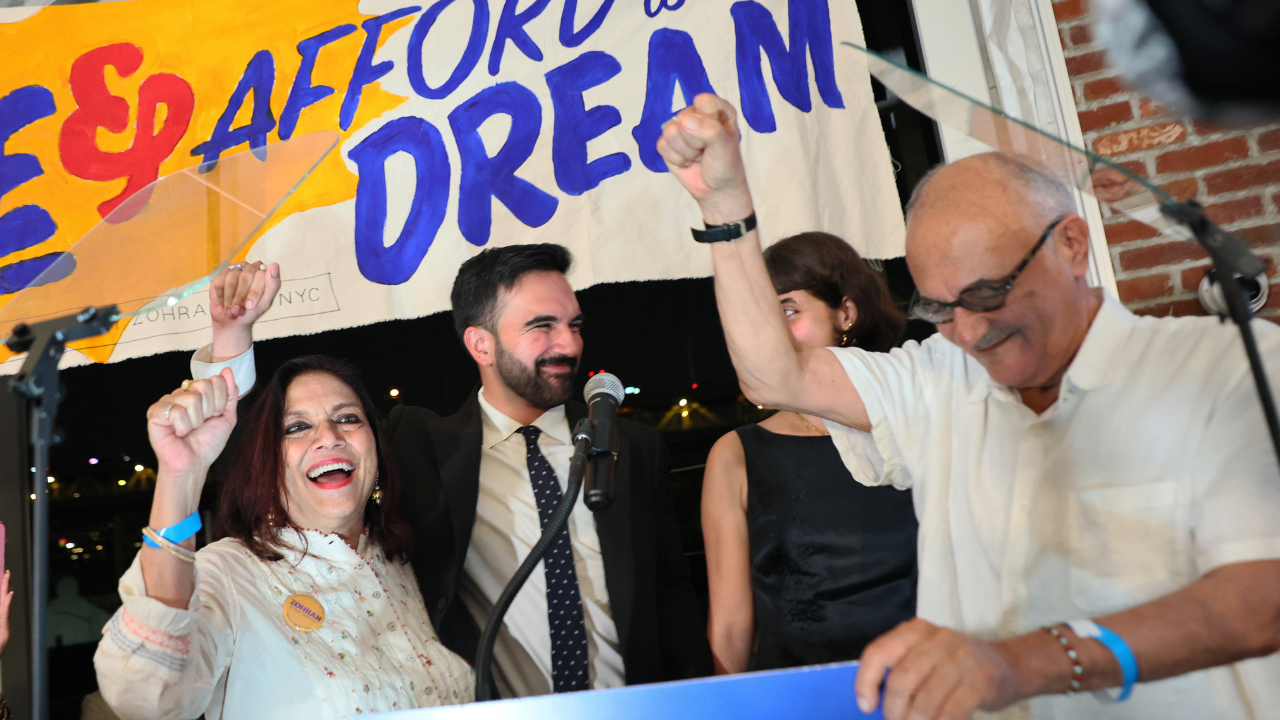
NEWYou can now listen to Fox News articles!
A resurfaced interview by New York City socialist mayoral candidate Zohran Mamdani shows him explaining that the family he grew up in made him «open» to being a «radical» and suggesting that socialism needs to be re-branded.
«I think, honestly, growing up in the family that I grew up in, I was quite open to what would be considered being a radical from a very young age,» Mamdani said on The Far Left Show in 2020.
«I mean, from the beginning, my identities are already considered radical by a lot of mainstream American political thought. So being a Muslim, being an immigrant, these are things that already kind of put you in the box of ‘other.’ And so it’s not that far of a jump because whenever you… stand up to speak up for the rights of others who share the same identity as you, then you’re a radical, right? So often people in this country are considered radicals if they stand up for Palestinian human rights.»
Mamdani has faced criticism over some of his positions taken as a young man, including supporting an academic boycott of Israel and starting a Students for Justice in Palestine chapter during his college days, as well as the past writings of his father, Mahmood Mamdani.
ZOHRAN MAMDANI FIRES BACK AT WHITE HOUSE MISPRONOUNCING HIS NAME: ‘M-A-M-D-A-N-I’
Mamdani explained his ‘radical’ background in a 2020 podcast appearance
Mahmood Mamdani’s social media presence is littered with anti-Israel positions referring to Israelis as «colonial settlers» and celebrating the idea of a «third intifada.» Additionally, Mahmood Mamdani sits on the council of an openly anti-Israel tribunal and once wrote in a book, which he dedicated to his son, that suicide bombers «stigmatized as a mark of barbarism.»
«Zohran Mamdani has built his political brand on the same radical, hate-filled and anti-American ideology his father, Mahmood Mamdani, has spent decades promoting—one that demonizes Jewish people and legitimizes anti-democratic violence,» Brooke Goldstein, a human rights attorney who specializes in antisemitism, told Fox News Digital earlier this month.
«The Jew-hatred the Mamdani family peddles is fundamentally anti-American and violates the core values our country was founded on—tolerance, equality, and liberty. Our nation’s strength lies in its diversity and commitment to protecting minority rights. Antisemitic world views threaten the peace and security of our communities.»
In the interview, the younger Mamdani went on to lament the criticism that Democratic Socialists of America have faced for supporting BDS.
MAMDANI CONFRONTED ON STREETS OF NYC ABOUT ‘COMMUNIST’ LABEL, REFUSES TO ANSWER
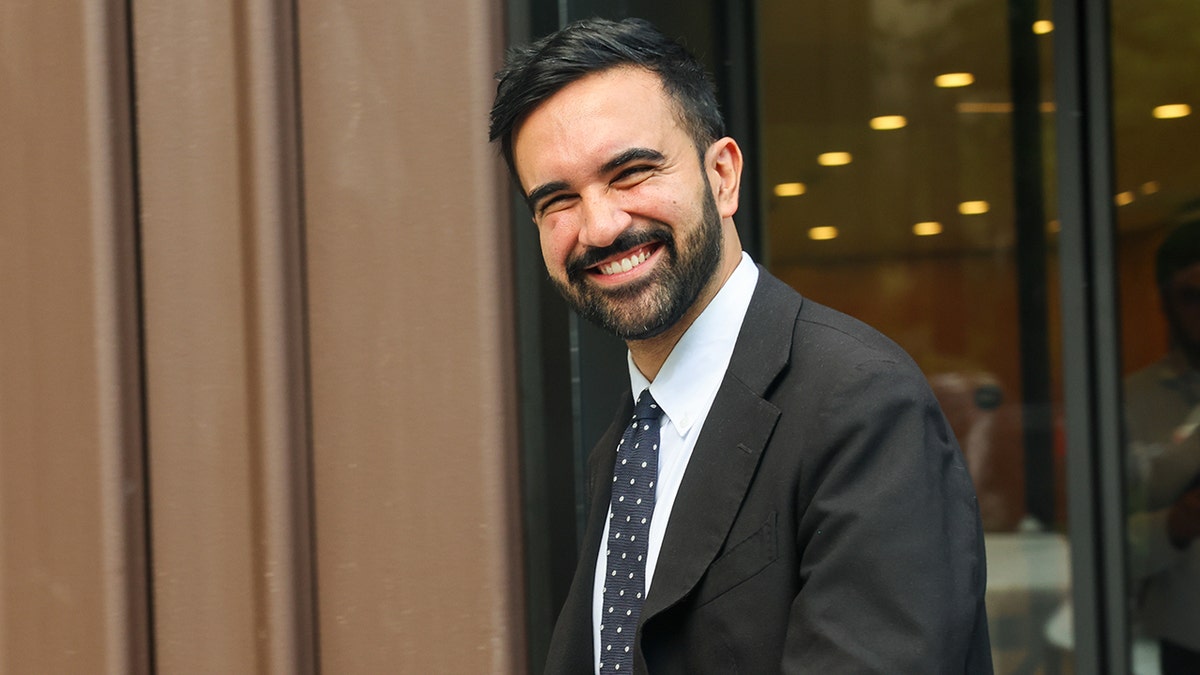
Democratic socialist candidate Zohran Mamdani, who won the Democratic primary for mayor of New York City, attends an endorsement event from the union DC 37 on July 15, 2025, (Spencer Platt/Getty Images)
BDS is described as «an international campaign to delegitimize the State of Israel as the expression of the Jewish people’s right to national self-determination by isolating the country economically through consumer boycotts, business and government withdrawal of investment, and legal sanctions,» according to Influence Watch.
Mamdani also explained in the interview his evolution as a «socialist.»
«I think I’ve been a socialist for quite a while, but I don’t think I understood myself within the terms of that label,» Mamdani said. «And I think that that is something that I not only internalized, but also became comfortable expressing when I became an active member of New York City DSA, which is an organization that I’ve been a member of. I attended my first meeting in early 2017, but I’ve been a much more active member since 2018.»
CLICK HERE TO GET THE FOX NEWS APP
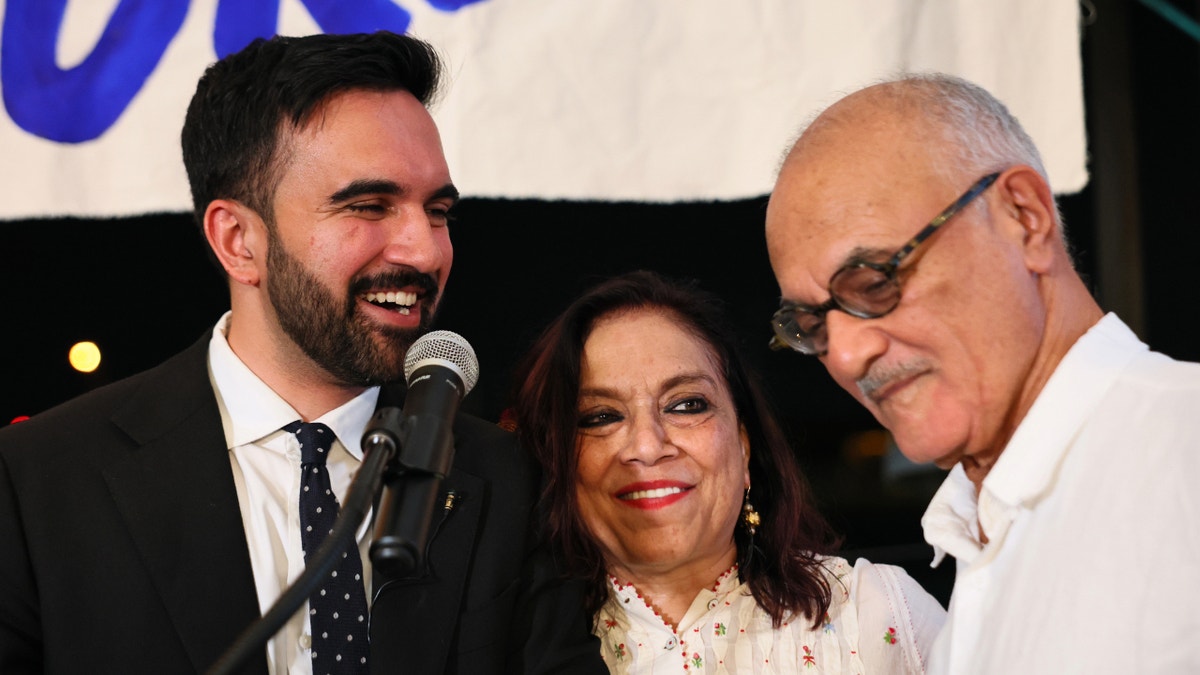
New York mayoral candidate, State Rep. Zohran Mamdani (D-NY) stands with his mother Mira Nair, and father Mahmood Mamdani as they celebrate during an election night gathering at The Greats of Craft LIC on June 24, 2025. (Michael M. Santiago/Getty Images)
Mamdani added that he hopes to rebrand the word socialism to be more appetizing for the general public.
«I think, for me, a lot of times people try and scare you into never embracing the word, and I think that there’s a lot of work that we have to do to change our branding, because socialism in and of itself, the way I understand it, is a fight for the state to provide all that is necessary to live a dignified life for each and every person in our state,» Mamdani explained.
«That is something that when you explain it in that way, and when you talk about the way in which it is applied, when you’re talking about typically housing, healthcare, education, but I would argue we must expand that beyond and talk about public transit and talk about the internet and talk childcare. People are receptive to that.»
Fox News Digital reached out to the Mamdani campaign for comment.
INTERNACIONAL
Taiwán alertó a la UE sobre las amenazas de infiltración impulsadas por el régimen chino para socavar la democracia

El presidente de Taiwán, William Lai, advirtió este martes que su país y la Unión Europea (UE) enfrentan amenazas comunes de interferencia externa, en especial intentos de manipulación electoral, desinformación y ataques a la confianza pública.
Las declaraciones se produjeron durante una reunión con miembros de la Comisión Especial del Parlamento Europeo sobre el Escudo Europeo de la Democracia, de visita en Taipei.
“Ambos se han encontrado con interferencias informativas e infiltraciones de fuerzas externas que han intentado manipular los resultados de las elecciones democráticas, crear confrontación en la sociedad y hacer tambalear la confianza de la gente en la democracia”, afirmó Lai, según un comunicado difundido por su oficina presidencial.
El mandatario taiwanés subrayó que Taiwán y la UE comparten valores fundamentales como la libertad y la democracia, y mantienen relaciones económicas y comerciales estrechas, aunque no tienen lazos diplomáticos formales. Pese a ello, Lai señaló que existe una cooperación creciente frente a riesgos híbridos como los que —según denunció— se originan en China.
La isla ha acusado en repetidas ocasiones a Beijing de desplegar campañas de desinformación, operaciones de influencia y ciberataques con el objetivo de socavar su sistema político. Lai reiteró que Taiwán rechaza las reclamaciones de soberanía de China, país que considera a la isla parte de su territorio y ha intensificado su presión diplomática y militar en los últimos años.
“Taiwán está decidido a trabajar para salvaguardar la democracia, la paz y la prosperidad en todo el mundo, y espera compartir su experiencia con Europa”, añadió el presidente taiwanés, al tiempo que agradeció el respaldo expresado por instituciones europeas ante las amenazas sobre el Estrecho.
En paralelo a la visita de la delegación europea, el Ministerio de Relaciones Exteriores de Taiwán (MOFA) valoró como “sincero y significativo” el apoyo expresado por Bruselas. El pronunciamiento del MOFA fue en respuesta a las conclusiones del 13.º Diálogo Estratégico UE-China, celebrado el 2 de julio en Bruselas y copresidido por la vicepresidenta de la Comisión Europea, Kaja Kallas.
Durante ese encuentro, la diplomática europea reiteró su rechazo a cualquier intento unilateral de modificar el statu quo en el Estrecho de Taiwán, en especial a través de fuerza militar o coerción, según el comunicado oficial. Kallas también manifestó preocupación por la situación de los derechos humanos en China y por las amenazas híbridas provenientes de Beijing, que afectan tanto a Europa como a la región del Indopacífico.
Además, el MOFA recordó que el Servicio Europeo de Acción Exterior (SEAE) ha emitido varios comunicados en respuesta a tres ejercicios militares a gran escala realizados por China desde mayo, los cuales incluyeron simulacros de bloqueo marítimo y ataques coordinados alrededor de la isla. Esos comunicados subrayaron la importancia de mantener la paz y la estabilidad en el Estrecho como elemento clave para la seguridad regional y global.
“La UE tiene un interés directo en mantener el statu quo en el Estrecho de Taiwán”, afirmó el MOFA en su declaración. El ministerio también aseguró que Taiwán continuará fortaleciendo la cooperación con Bruselas y otros aliados democráticos para proteger el orden internacional basado en normas, y para enfrentar las amenazas comunes que afectan a regímenes democráticos.
China ha rechazado todas las acusaciones de interferencia y sostiene que Taiwán busca apoyo extranjero para impulsar una agenda separatista. A pesar de ello, tanto Taiwán como la UE han intensificado en los últimos años los canales de comunicación informal, especialmente en áreas de comercio, tecnología, ciberseguridad y defensa de los valores democráticos.
(Con información de Reuters)
Asia / Pacific,TAIPEI

 POLITICA2 días ago
POLITICA2 días agoJuan Carlos Maqueda defendió la condena contra Cristina Kirchner: “Hay una sensación de que se hizo Justicia y que no hay impunidad”

 POLITICA2 días ago
POLITICA2 días agoExpulsada del Gobierno, Victoria Villarruel empieza a tomar distancia, pero no tiene proyecto político para este año

 POLITICA1 día ago
POLITICA1 día agoLa CGT evalúa adelantar a octubre el recambio de sus autoridades y define una movilización contra Milei





